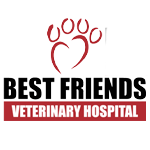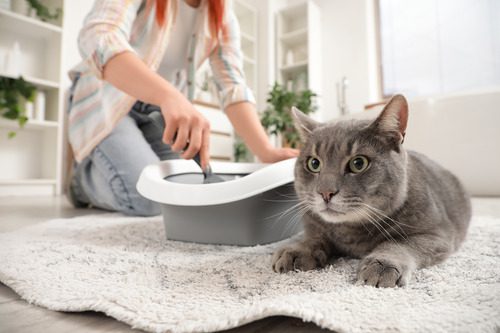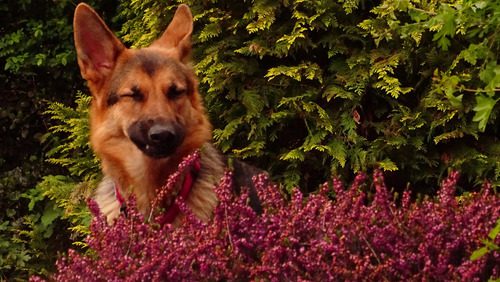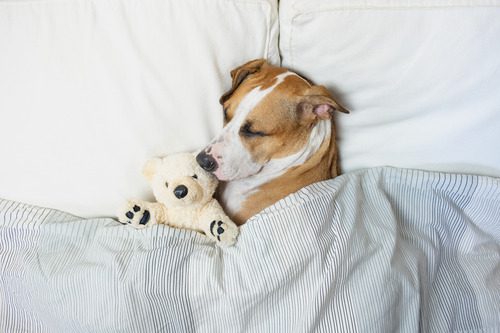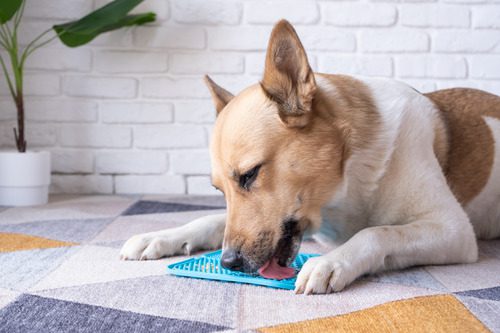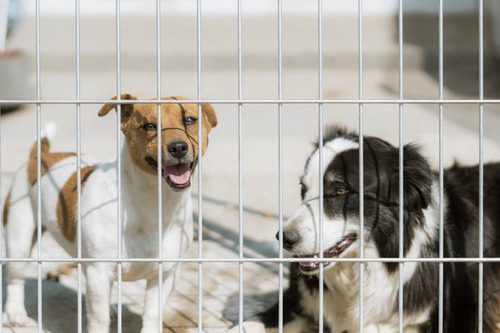Why Is Your Dog Losing Hair Around Their Eyes
Seeing your dog lose hair around their eyes can be concerning. This issue not only affects your dog’s appearance but can also indicate underlying health problems. Understanding the potential causes and seeking professional help is crucial. In this blog, we’ll explore the common reasons for hair loss around your dog’s eyes and the steps you should take to address this issue.
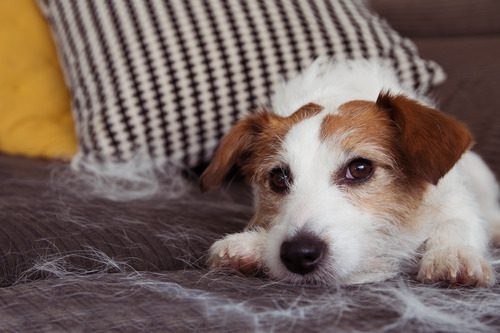
Common Causes of Hair Loss Around Your Dog’s Eyes
Several factors can contribute to hair loss around your dog’s eyes. Identifying the cause is the first step toward finding the right solution. Here are some common reasons:
Allergies
Allergies are a frequent cause of hair loss in dogs. Your dog might be allergic to certain foods, environmental factors like pollen, or substances they come into contact with, such as cleaning products. Allergies can lead to itching and scratching, causing hair to fall out around the eyes.
Parasites
Parasites such as mites, fleas, and ticks can cause significant irritation and hair loss around your dog’s eyes. Mites, in particular, are notorious for causing a condition called mange, which results in hair loss and skin inflammation.
Infections
Bacterial and fungal infections can lead to hair loss around your dog’s eyes. These infections often cause redness, swelling, and discharge, in addition to hair loss. It’s important to address infections promptly to prevent further complications.
Hormonal Imbalances
Hormonal imbalances, such as hypothyroidism or Cushing’s disease, can lead to hair loss in dogs. These conditions affect the overall health of your dog’s skin and coat, often resulting in hair thinning around the eyes and other parts of the body.
Trauma
Physical trauma to the eye area, such as scratching or rubbing due to irritation, can lead to hair loss. Dogs may scratch or rub their eyes if they are experiencing discomfort, leading to further hair loss and potential skin damage.
Nutritional Deficiencies
A poor diet lacking essential nutrients can affect your dog’s skin and coat health. Nutritional deficiencies can cause hair to become brittle and fall out, particularly around sensitive areas like the eyes.
When to See the Veterinarian
While some causes of hair loss around your dog’s eyes might be minor, others can indicate more serious health issues. It’s essential to know when to seek professional help. Here are some signs that you should bring your dog to the veterinarian:
- Persistent Hair Loss: If your dog’s hair loss around the eyes persists for more than a few days or worsens, it’s time to consult your veterinarian. Persistent hair loss can be a sign of an underlying health problem that requires medical attention.
- Additional Symptoms: Look for additional symptoms such as redness, swelling, discharge, or changes in your dog’s behavior. These signs can indicate infections or other health issues that need prompt treatment.
- Sudden Onset: Sudden hair loss around your dog’s eyes can be alarming and may indicate an acute issue such as an allergic reaction or parasite infestation. Immediate veterinary attention is crucial in such cases.
Diagnostic Tests and Treatments
When you visit your veterinarian, they will likely perform a series of diagnostic tests to determine the cause of your dog’s hair loss. Here are some common tests and treatments:
Skin Scraping and Biopsy
A skin scraping or biopsy can help identify the presence of parasites, infections, or other skin conditions. These tests are crucial for determining the exact cause of hair loss and guiding appropriate treatment.
Allergy Testing
If allergies are suspected, your veterinarian may recommend allergy testing to identify specific allergens affecting your dog. Once identified, you can take steps to minimize your dog’s exposure to these allergens.
Blood Tests
Blood tests can reveal underlying hormonal imbalances or nutritional deficiencies contributing to hair loss. These tests provide valuable information for developing a comprehensive treatment plan.
Medications
Depending on the cause, your veterinarian may prescribe medications such as antibiotics for infections, anti-parasitic treatments, or medications to manage allergies and hormonal imbalances.
Dietary Changes
If nutritional deficiencies are causing hair loss, your veterinarian may recommend dietary changes or supplements to improve your dog’s overall health and coat condition.
Preventing Hair Loss Around Your Dog’s Eyes
Prevention is always better than cure. By taking proactive steps, you can help maintain your dog’s skin and coat health and prevent hair loss around the eyes. Here are some preventive measures:
- Regular Grooming: Regular grooming helps keep your dog’s coat healthy and free from parasites. Brush your dog regularly to remove loose hair and prevent matting. Pay special attention to the eye area to keep it clean and free from debris.
- Balanced Diet: Ensure your dog receives a balanced diet rich in essential nutrients. High-quality dog food that meets your pet’s nutritional needs can help maintain healthy skin and a shiny coat.
- Allergy Management: If your dog has known allergies, work with your veterinarian to develop a management plan. This plan might include avoiding specific allergens, using hypoallergenic products, and providing appropriate medications during allergy flare-ups.
- Regular Veterinary Check-Ups: Regular veterinary check-ups are vital for early detection and prevention of health issues. Your veterinarian can monitor your dog’s overall health, identify potential problems early, and provide guidance on maintaining optimal skin and coat health.
How Best Friends Veterinary Hospital Can Help
At Best Friends Veterinary Hospital, we understand the importance of your dog’s well-being. Our experienced team is dedicated to providing comprehensive care for all your pet’s needs. If your dog is losing hair around their eyes, we can help diagnose the cause and develop an effective treatment plan. Call us today to schedule an appointment and ensure your dog receives the best possible care.
Recent Posts
About Best Friends Veterinary Hospital
Our veterinarians and staff warmly welcome dogs, cats, and a variety of exotic pets as patients here at our animal hospital, and we offer a host of services to give your unique family member a lifetime of excellent care.
